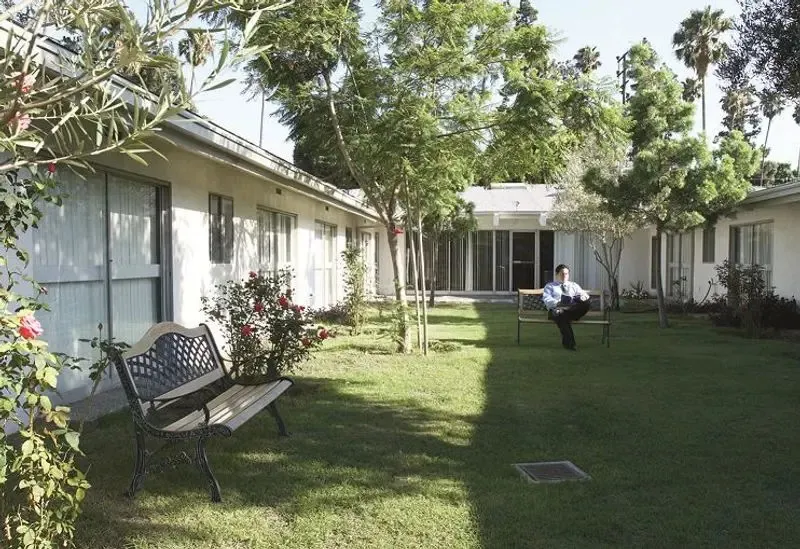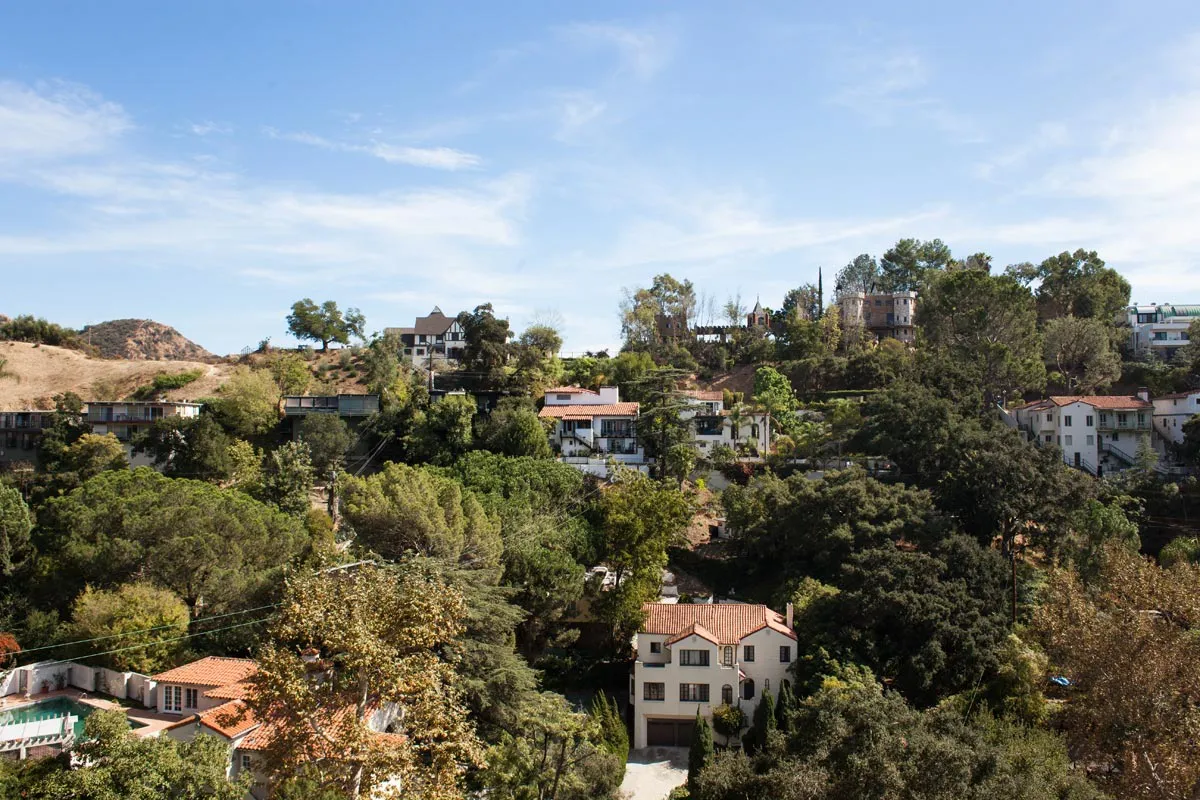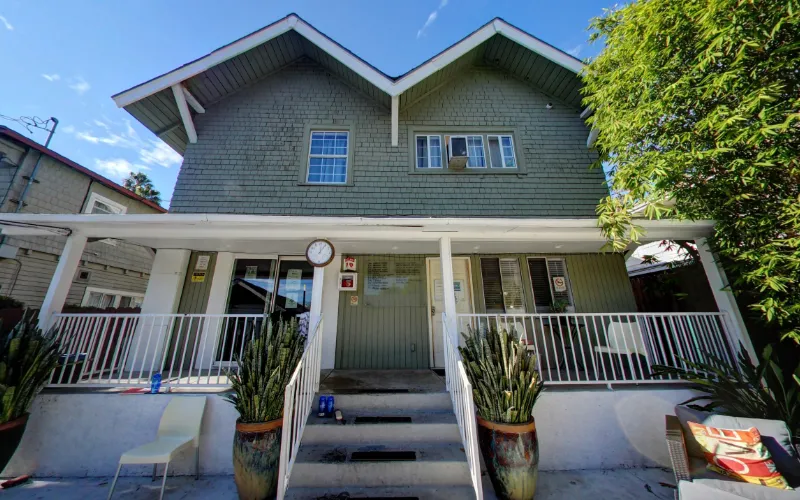Explore leading depression rehab centers and treatment facilities in Los Angeles and nearby areas. Depression treatment centers provide specialized programs that address emotional, behavioral, and cognitive challenges through therapy, medication management, and holistic care. These facilities focus on helping individuals regain joy, energy, and a renewed sense of purpose. Find the best depression rehab centers dedicated to empowering individuals to heal, rebuild, and thrive.
Ads
More Info
Advertisement Disclosure
Our website is funded by advertisers who pay for prominently labeled placements.
Read More152 Rehab Centers were found
Filters
Locations
- Los Angeles(+98)
- Culver City(+14)
- Westlake Village(+13)
- Woodland Hills(+11)
- Beverly Hills(+10)
- Santa Monica(+9)
- Sherman Oaks(+7)
- West Hollywood(+6)
- Malibu(+5)
- Chatsworth(+5)
- Pasadena(+5)
- Encino(+5)
- Redondo Beach(+4)
- Lancaster(+4)
- Reseda(+4)
- Studio City(+4)
- Northridge(+3)
- San Mateo(+3)
- Lynwood(+3)
- Vernon(+3)
- Van Nuys(+3)
- Tarzana(+3)
- North Hollywood(+3)
- Glendale(+3)
- Gardena(+3)
- Riverside(+3)
- Granada Hills(+2)
- Shadow Hills(+2)
- Venice(+2)
- Orange County(+2)
- Pomona(+2)
- West Hills(+2)
- Valley Village(+2)
- Burbank(+2)
- Brentwood(+2)
- Long Beach(+2)
- Sun Valley(+1)
- Torrance(+1)
- San Jacinto(+1)
- San Pedro(+1)
- Upland(+1)
- Whittier(+1)
- Toluca Lake(+1)
- Thousand Oaks(+1)
- Simi Valley(+1)
- Mission Viejo(+1)
- Acton(+1)
- Beaumont(+1)
- Wilmington(+1)
- Panorama City(+1)
- Anaheim(+1)
- Laguna Hills(+1)
- Inglewood(+1)
- Alhambra(+1)
- Rosemead(+1)
- Maywood(+1)
- Manhattan Beach(+1)
- Monterey Park(+1)
- Claremont(+1)
- Covina(+1)
- La Puente(+1)
- Pico Rivera(+1)
- San Fernando(+1)
- Azusa(+1)
- Santa Fe Springs(+1)
- Glendora(+1)
- Agoura Hills(+1)
- El Segundo(+1)
- Duarte(+0)
- Sunland(+0)
- Downey(+0)
- Cudahy(+0)
- El Monte(+0)
- Compton(+0)
- Hermosa Beach(+0)
- Cerritos(+0)
- Calabasas(+0)
- Bellflower(+0)
- Bell Gardens(+0)
- Avalon(+0)
- Arcadia(+0)
- Altadena(+0)
- Paramount(+0)
- South El Monte(+0)
- Walnut(+0)
- West Covina(+0)
- Santa Clarita(+0)
- San Gabriel(+0)
- San Dimas(+0)
- Rolling Hills(+0)
- Orange(+0)
- Hawaiian Gardens(+0)
- Palmdale(+0)
- Norwalk(+0)
- Montebello(+0)
- Lakewood(+0)
- South Pasadena(+0)
- Carson(+0)
- Hawthorne(+0)
Conditions
- Drug(+278)
- Alcohol(+219)
- Mental Health(+195)
- Opioid(+193)
- Cocaine(+184)
- Trauma(+180)
- Methamphetamine(+177)
- Benzodiazepines(+174)
- Heroin(+173)
- Prescription Drugs(+159)
- Depression(+152)
- Anxiety(+149)
- Xanax(+145)
- Synthetic Drugs(+138)
- PTSD(+133)
- Adderall(+131)
- Marijuana(+112)
- Bipolar(+109)
- Ecstasy(+104)
- MDMA(+99)
- Behavioral Health(+93)
- LSD(+93)
- Psychedelics(+91)
- Fentanyl(+71)
- Stress(+71)
- OCD(+69)
- Personality Disorders(+63)
- ADHD(+61)
- Gambling(+38)
- Eating Disorders(+35)
- Anorexia(+34)
- Binge Eating Disorder(+34)
- Bulimia(+33)
- Schizophrenia(+32)
- Gaming(+28)
- Internet Addiction(+27)
- Sex Addiction(+25)
- Burnout(+23)
- Pornography(+22)
- Shopping(+10)
- Narcissism(+8)
Insurances
- BlueCross BlueShield(+129)
- Aetna(+126)
- Anthem(+105)
- Cigna(+105)
- United Healthcare(+66)
- Humana(+63)
- Optum(+53)
- Medicaid(+53)
- MHN(+51)
- Magellan Health(+47)
- Kaiser Permanente(+39)
- Medicare(+31)
- GEHA(+31)
- ComPsych(+29)
- Highmark(+25)
- AmeriHealth(+13)
- Tufts Health(+11)
- Oscar(+9)
- CareFirst(+9)
- Molina Healthcare(+8)
- Intermountain Healthcare(+6)
- Beacon Health Options(+2)
- UMR(+2)
- NYSHIP(+2)
- ILWU(+2)
- Geisinger(+2)
- Empire Life(+2)
- Empire BCBS(+2)
- Bright Health(+2)
- GuideWell(+1)
Therapies

$45,000+ - 30-90 days

$30,000-$50,000

N/A

Call for Rates - 30+ days

Call for rates - 7-30 days

$1,000/day - 30+ days
Comprehensive Depression Rehab Programs in Los Angeles
Depression is a complex and deeply personal mental health condition that affects how a person thinks, feels, and functions in daily life. Unlike temporary sadness, depression is persistent and can make even simple tasks feel overwhelming. It often impacts relationships, work performance, and overall well-being, making professional treatment essential for recovery. If you or a loved one are struggling with both depression and substance use, it’s important to be aware of the different co-occurring conditions that may require specialized care.
Many people struggling with depression feel isolated, believing they should be able to "snap out of it" or that their emotions are a sign of weakness. In reality, depression is a medical condition influenced by biological, psychological, and environmental factors. With the right treatment, individuals can regain stability and experience significant improvements in their quality of life.
Los Angeles offers a wide range of depression treatment options, including therapy, medication management, and evidence-based and holistic therapies tailored to each person’s unique needs. Depending on the severity, there are different levels of care available, from outpatient programs to residential treatment centers.
Recognizing the Signs of Depression
Depression manifests differently for everyone, but some of the most common symptoms include:
- Persistent feelings of sadness, emptiness, or hopelessness
- Loss of interest in activities that once brought joy
- Changes in sleep patterns, including insomnia or excessive sleeping
- Fatigue and lack of motivation
- Difficulty concentrating or making decisions
- Feelings of guilt, worthlessness, or self-blame
- Changes in appetite, leading to weight loss or gain
- Physical symptoms such as headaches, muscle pain, or digestive issues
- Suicidal thoughts or feelings of wanting to disappear
Many individuals dismiss their symptoms, attributing them to stress, exhaustion, or personal weakness. However, when these feelings persist for weeks or months, they may indicate clinical depression, which requires professional attention. Depression can also co-occur with other issues, including alcohol use disorder or drug addiction, making integrated treatment especially important.
When to Seek Professional Help
Everyone experiences occasional sadness, but when depressive symptoms begin to interfere with daily functioning, it is time to seek support. Many individuals delay treatment because they believe their symptoms are not severe enough, but early intervention can prevent depression from worsening.
Signs that professional help may be necessary include:
- Difficulty maintaining relationships due to emotional withdrawal
- Struggling to keep up with work, school, or personal responsibilities
- Using alcohol, drugs, or other unhealthy coping mechanisms to manage emotions
- Feeling disconnected from the world, even in social situations
- Thoughts of self-harm or suicide
Reaching out for help is a sign of strength, not weakness. Depression is highly treatable, and many people experience significant relief with proper care. It’s also common for depression to overlap with trauma-related disorders, so a comprehensive assessment is essential.
Treatment Options for Depression
Effective depression treatment typically involves a combination of therapy, medication, and lifestyle changes. The right approach depends on the severity of symptoms, individual needs, and underlying factors contributing to the condition.
Psychotherapy is one of the most effective tools for managing depression. Cognitive behavioral therapy and other modalities help individuals identify and change negative thought patterns, while interpersonal therapy focuses on improving relationships and social interactions. Some individuals benefit from psychodynamic therapy, which explores past experiences and unconscious influences on emotions.
Medication may be recommended for those with moderate to severe depression. Antidepressants such as SSRIs or SNRIs help regulate brain chemistry, reducing symptoms over time. It often takes several weeks to notice improvements, and finding the right medication may require some trial and adjustment under the supervision of a psychiatrist.
Holistic and lifestyle-based treatments can also support recovery. Many people find relief through regular physical activity, as exercise increases serotonin and endorphin levels, improving mood naturally. Mindfulness practices, meditation, and yoga help reduce stress and promote emotional balance.
Nutritional therapy may play a role in depression management as well. Some studies suggest that deficiencies in certain vitamins and minerals, such as omega-3 fatty acids and B vitamins, can contribute to mood disorders. A balanced diet can support brain health and overall well-being.
For individuals with severe depression that does not respond to traditional treatments, alternative therapies such as ketamine-assisted therapy or transcranial magnetic stimulation may be considered. These approaches target brain activity and have shown promising results for treatment-resistant depression. People who have co-occurring substance use challenges such as cocaine addiction or benzodiazepine dependency may benefit from a dual diagnosis program.
The Role of Support Systems in Recovery
Depression can feel isolating, but having a strong support system is an essential part of healing. Friends, family, and support groups can provide encouragement and accountability during difficult times. Some treatment centers also offer support for individuals managing opioid addiction and other co-occurring conditions.
Many people benefit from peer support groups where they can connect with others who understand their struggles. Group therapy sessions, both in-person and online, offer a sense of community and shared understanding that can make the recovery process less daunting.
Family therapy is also an option for those whose depression has strained relationships. Educating loved ones about depression can improve communication and create a more supportive environment.
Life After Depression Treatment
Recovery from depression does not happen overnight, but with time and consistency, individuals can rebuild their sense of self and regain hope for the future. Many people continue therapy after their initial treatment to reinforce healthy coping mechanisms and prevent relapse.
Developing a daily routine that includes self-care, exercise, and activities that bring fulfillment is crucial. Engaging in hobbies, maintaining social connections, and setting realistic goals can help sustain emotional well-being.
It is also important to recognize potential triggers and early warning signs of depressive episodes. By addressing symptoms early and seeking support when needed, individuals can maintain long-term stability.
Finding Depression Treatment in Los Angeles
Los Angeles has a wide range of treatment options for depression, including outpatient therapy, inpatient programs, medication management, and holistic recovery centers. Finding the right treatment depends on individual needs, financial considerations, and personal preferences. For those with more complex needs or dual diagnoses, exploring all available mental health and addiction treatment options can help ensure the best fit.
Speaking with a mental health professional is the first step in determining the best course of action. Many treatment providers offer free consultations to help individuals explore their options and create a plan for recovery.
Frequently Asked Questions
How long does it take for depression treatment to work?
Can depression go away on its own?
What if therapy or medication doesn’t work?
How can I help a loved one struggling with depression?
Ads
More Info
Advertisement Disclosure
Our website is funded by advertisers who pay for prominently labeled placements.
Read More






































